Fiji is known for its breathtaking beaches, friendly locals, and vibrant culture. While many people visit for the scenery, exploring the local language, Fijian (or Vosa Vakaviti), can make your trip even more meaningful. Learning a few phrases and expressions not only helps you communicate better but also shows respect and appreciation for the local culture.
This article will guide you through some common Fijian phrases and expressions that are easy to learn and can enrich your experience. Whether you’re traveling to Fiji for a vacation, on a business trip, or simply curious about the language, this guide is here to help!
Why Learn Fijian?
Fijian is one of Fiji’s three official languages, alongside English and Hindi. While English is widely spoken, especially in urban areas and tourist spots, knowing a bit of Fijian can help you connect with the locals on a deeper level. A simple greeting or thank you in the local language often brings a warm smile and sometimes even sparks a friendly conversation.
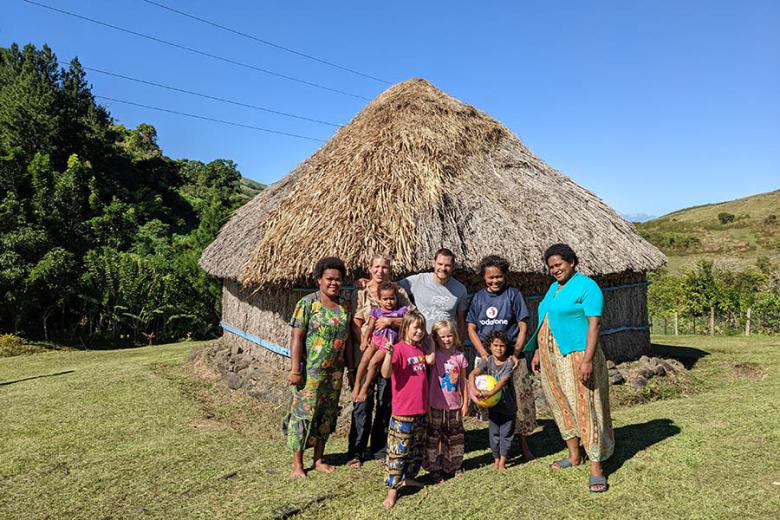
Fijians Standing Outside Their House (Image: travelnation.co.uk)
The Basics: Greetings and Polite Expressions
- Bula! (BOO-lah)
The word “Bula” is the most well-known Fijian greeting. It means “hello” but is more than just a simple greeting. Bula also conveys a sense of good health and happiness. You’ll hear it everywhere in Fiji—from the airport to shops and even casual encounters on the street. - Vinaka (VEE-nah-kah)
This means “thank you.” You can use it on its own or combine it with other phrases. For example:- Vinaka vakalevu (vee-NAH-kah vah-kah-LAY-voo) – Thank you very much.
- Io (EE-oh) and Sega (SENG-ah)
These mean “yes” and “no,” respectively. They are simple and essential for basic communication. - Moce (MO-they)
This is how you say “goodbye” in Fijian. It’s commonly used when parting ways, whether temporarily or for longer farewells.
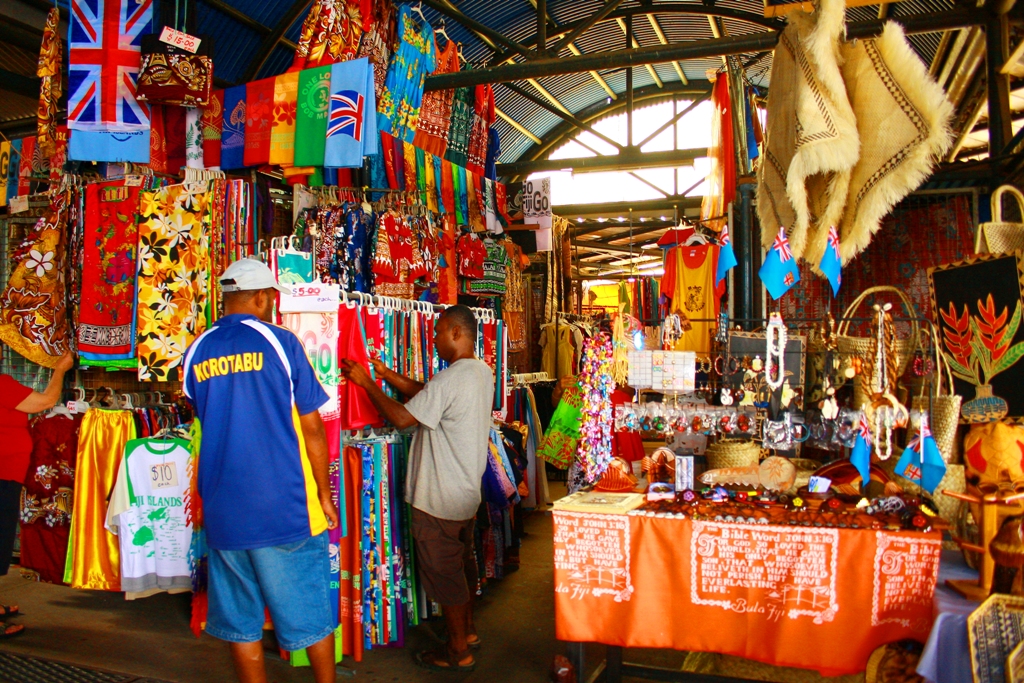
Image: Flickr
Getting Around: Travel and Directions
When exploring Fiji, especially in smaller villages or rural areas, knowing how to ask for help in Fijian can be invaluable.
- E vei…? (eh VAY-ee)
This means “Where is…?” For example:- E vei na vale lailai? (Where is the bathroom?)
- E vei na basi? (Where is the bus?)
- Au via gole kina… (Ow vee-ah GO-leh KEE-nah…)
“I want to go to…” For example:- Au via gole kina Nadi. (I want to go to Nadi.)
- Kua ni leqa (KOO-ah nee LENG-ah)
This means “Don’t worry.” A kind and useful phrase to reassure someone or if someone is reassuring you.
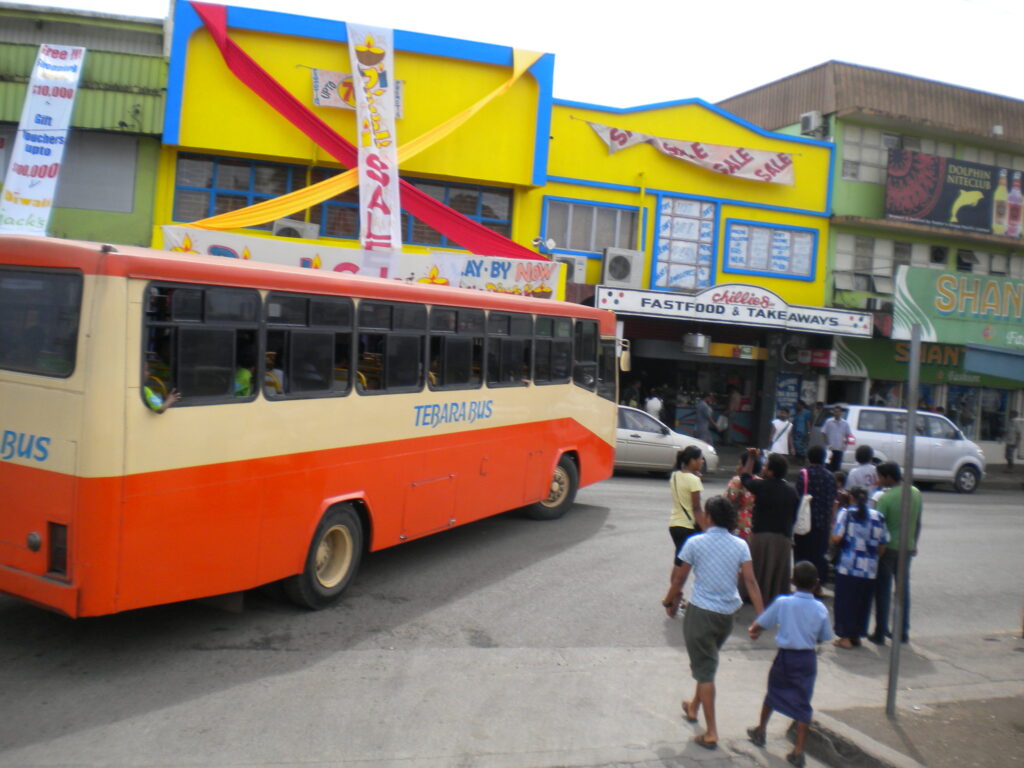
Image : Flickr
Dining and Hospitality: Useful Phrases at Restaurants and Hotels
Dining in Fiji is a delightful experience with its mix of local and international cuisines. Use these phrases to enhance your culinary adventures:
- Kana vinaka (KAH-nah vee-NAH-kah)
This means “Eat well” or “Enjoy your meal.” It’s often said before meals. - E rawarawa (eh RAH-wah-RAH-wah)
“It’s delicious.” Complimenting the chef or cook with this phrase will always be appreciated. - Au gadreva na wai (Ow GAH-dreh-vah nah WAH-ee)
This means “I need water.” - Au vinakata na ikanakana vakaviti (Ow vee-nah-KAH-tah nah ee-kah-nah-KAH-nah vah-kah-VEE-tee)
This means “I would like Fijian food.” Great for when you want to explore traditional dishes like kokoda or lovo meals.
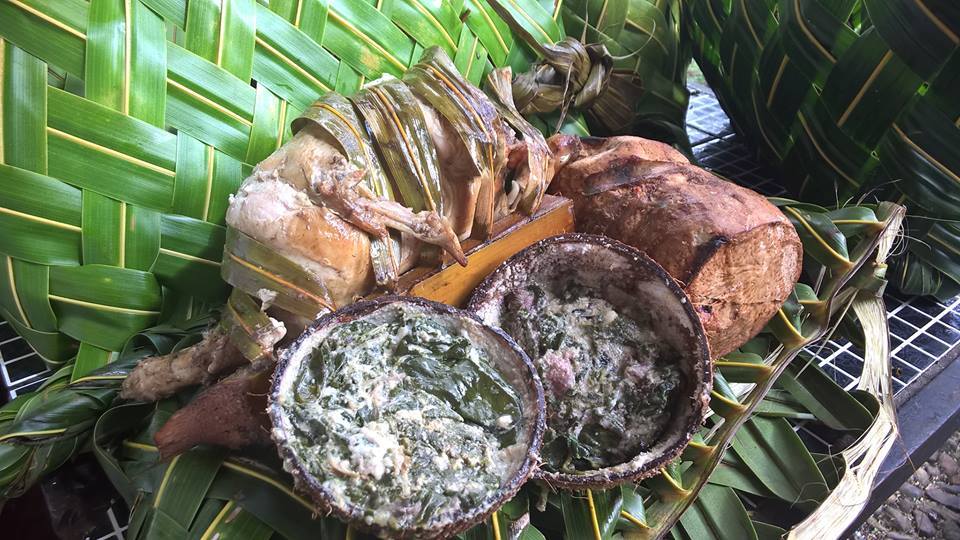
Food Traditionally wrapped in coconut leaves and cooked in coconut shell. (Image: Facebook)
Cultural Expressions: Building Connections
Language is more than just words—it’s a way to understand the culture and values of the people. Here are a few phrases that reflect Fijian hospitality:
- Sega na leqa (SENG-ah nah LENG-ah)
This means “No worries.” Fijians use it often, embodying their laid-back and friendly nature. - Loloma (LO-loh-mah)
This word means “love” or “kindness.” It’s often used to express goodwill and caring. - Vakavinavinaka (vah-kah-VEE-nah-vee-NAH-kah)
A more formal way to say “thank you,” used in heartfelt situations. - Kerekere (keh-reh-KEH-reh)
This phrase means “please” but also carries a cultural nuance of requesting something humbly.
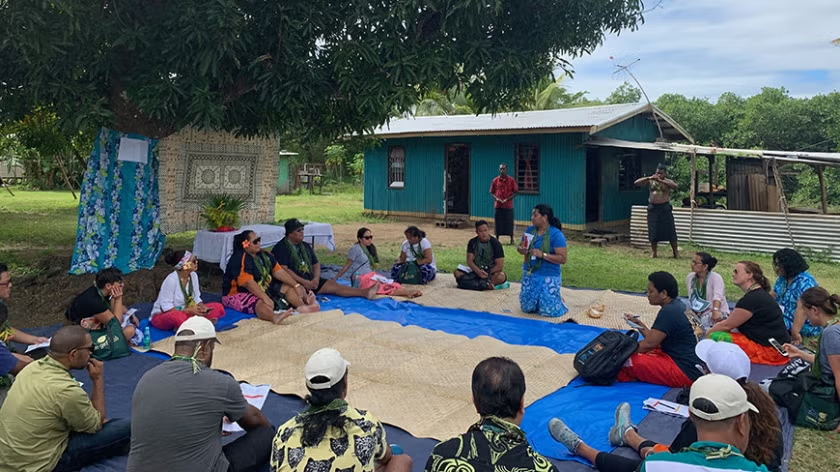
Fijians Sitting For A workshop (Image: thegef.org)
Tips for Pronunciation
Fijian is a phonetic language, meaning words are pronounced as they are written. Here are some general tips to help you sound more natural:
- Vowels are pronounced as follows:
- A = “ah” as in father
- E = “eh” as in bed
- I = “ee” as in machine
- O = “oh” as in go
- U = “oo” as in food
- The letter “D” is pronounced with an “n” sound in front, so “Nadi” is pronounced as “NAN-di.”
Conclusion
Learning Fijian phrases and expressions can transform your visit to Fiji into a truly immersive experience. It bridges the gap between cultures and opens up new ways to connect with the warm-hearted people of Fiji. Even a few simple words like bula or vinaka can go a long way in showing your respect and appreciation.
So, whether you’re planning your next trip to Fiji or just want to learn a new language, give these phrases a try. You’ll be welcomed with open arms and big smiles.

Image: tropicalfiji.com
